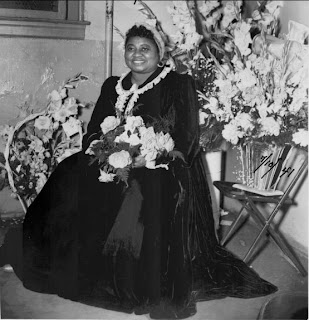This blog is a digital forum to discuss the link between history and the people, events, and ideas shaping our world.
Sunday, May 22, 2011
The King’s Speech in Form and Function
The 2011 Oscar ceremony was summed up by The King’s Speech, a movie that celebrated a privileged white man “finding his voice.” The film ironically, is about overcoming a disability, yet winning best picture, actor, director, and original screenplay served to highlight the movie industry’s lack of racial diversity. Shawn Tan’s win and Halle Berry’s appearance aside, diversity in this year’s show seemed to consist of celebrating “mature” performers or showing members of the LGBTQ community standing proud and thanking their partners. Women, beyond standard categories for performance, garnered honors for their work behind the camera.
At night’s end, The King Speech’s victory served as a metaphorical celebration of the white men who dominate the U.S. entertainment industry. This, despite the fact that the latest census indicates the United States will be majority minority by mid-century, or the more immediate reality that Hollywood serves a non-white global market. However, the Academy of Motion Pictures Arts and Science has made little headway promoting racial diversity. This is not to say that no program exists. The Academy awards grants every year to promote minority involvement in the entertainment industry. Still, the lack of racial diversity at the Oscars demonstrates how obstacles to diversity in the entertainment industry’s professional culture need more complex solutions than simple community outreach.
The Oscar show reflects on both the real business of making movies and how those movies shape our imagination about the American experience. In 2001, when Denzel Washington and Halle Berry won awards for best actor and actress, their victories came two years after the then-president of NAACP Kweisi Mfume, challenged television networks for their lack of diversity. His critique led the major broadcasters to sign a pledge to pursue diversity in front and behind the camera. By comparison, movies have offered little in the way institutional commitment to challenge the lack of minority representation.
While there is a small cadre of minority performers with an on-camera presence, winning an Oscar is a statement that resonates beyond acting. As Melissa Leo said in her acceptance speech, the Oscar is “about the work.” It is the ultimate marker of excellence from your peers. Winning the Oscar is an affirmation from professionals to professionals. Academy members alone decide the winners, and thus a consideration of racial minorities’ successes or failures is a very real commentary on the professional culture within the industry. Acting aside, the televised categories represent thousands of professionals working within highly unionized industries that cannot seem to mentor racial minorities to the highest levels of success. This failure in turn creates the impression for millions watching that those jobs are not available to racial minorities. Indeed, while “cross over” performers achieve a mystical acceptance, the stigma create by the category demonstrated the continuing separation created by race in popular entertainment. Even a successful director like Spike Lee struggles to receive funding for projects. Lee challenge to Hollywood is well known, but while some would argue that writer/producer/actor Tyler Perry has overcome these barriers, I disagree. Perry’s appeal rests, in part, on his recognition that African-America audiences have been ignored. His theater, television, and film productions have recreated segregation era chitlin circuit, skillfully creating Afro-centric tales that act as counterpoints to mainstream white media.
It is unfair to suggest that this year’s winners are somehow responsible for the lack of diversity among the nominees. Indeed, such suggestions confuse the real issue. In order for the Academy of Motion Picture Arts and Science to give an award to racial minorities, more must be members of the club. This means more programs designed to target minorities behind the camera and in the front office. This is made all the more crucial by media convergence, but it is also made easier. With fewer and fewer companies producing entertainment, creating a culture that makes inclusion a priority becomes easier. The requirements demanded for the NBC/Universal merger are a functional if not spectacular example of institutional guidelines that can promote inclusiveness. NBC/Universal promised investment in minority production companies, targeted program for minorities, and diversity at all level of corporate structure. Without efforts like these, changes in professional culture are unlikely and the Oscar ceremony will continue its imperfect reflection of the American experience.
Subscribe to:
Comments (Atom)
